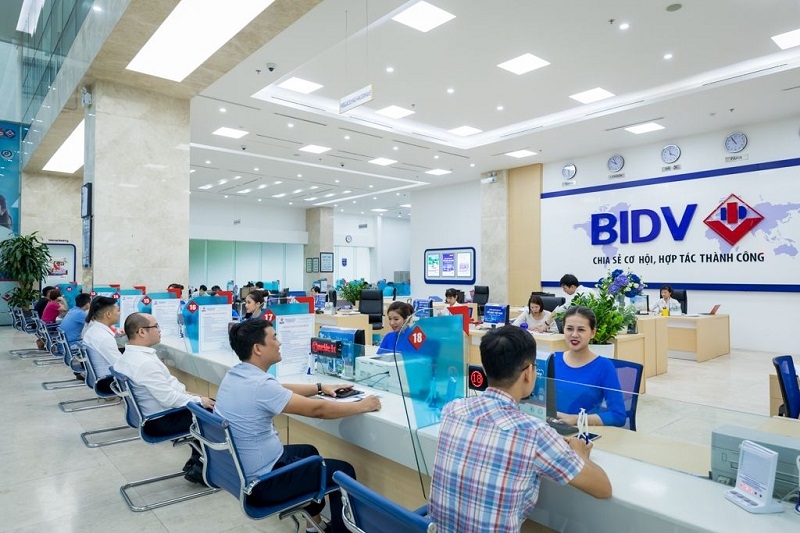Banking M&A activity could surpass 2019 outcomes
 |
| Banking M&A activity could surpass 2019 outcomes (illustration photo) |
Strategic co-operation between Vietnamese bank BIDV and South Korean KEB Hana Bank turned the former into the largest market capitalisation lender in Vietnam at VND40.2 trillion ($1.73 billion) in 2019.
KEB Hana invested capital in exchange for a 15 per cent stake in BIDV lasting at least five years, while BIDV will receive long-term technical assistance from the South Korean lender and its parent company, Hana Financial Group.
The tie-up also quenched the thirst for the bank’s raising capital, as BIDV announced it has now satisfied Basel II requirements.
Before the deal, several South Korean investors had already ramped up their presence in the Vietnamese financial industry, such as Shinhan Bank’s purchase of Prudential Finance and Lotte Card’s buyout of Techcombank Finance.
South Korea is one of the largest foreign investors in Vietnam’s banking industry, with a slew of lenders having quickly clutched onto shares.
This number is set to surpass itself in the coming time as financiers are increasingly gearing to penetrate the market. Michael Dc Choi, deputy director of the Korea M&A Centre under the Korea Trade and Investment Promotion Agency revealed that several commercial banks in South Korea are considering a leap overseas by increasing their footprint in local lenders, and are much intrigued by Vietnam.
Meanwhile DGB Financial Group has recently applied for a licence in Vietnam, getting ready to extend into the country after already entering Cambodia and Laos.
“We are looking for opportunities in Vietnam just as Shinhan Bank has there,” said a DGB representative, adding that there are a lot of cultural similarities between South Korea and Vietnam – one of the main reasons why the group is seeking to launch services here.
Michael Han, chief representative of SK Group in Vietnam, the third-largest conglomerate in South Korea, also noted that the giant is looking for further investment prospects from both small and large domestic businesses, and banks are not excluded from the list.
According to researchers at the M&A Forum, an annual event held by VIR and the CMAC Institute, recent shifts in the marketplace have begun to bring larger acquisitions back in favour, driving an emphasis on consolidation and scale. The value of M&A deals is expected to reach $7.5 billion in 2020, equalling combined deals of two years earlier.
Experts are optimistic about the dealmaking environment heading into 2020 and beyond for several reasons.
First and foremost, seeing prospering potential by judging the success of predecessors in Vietnam seems to be a driving force for South Korean investment waves lapping onto Vietnamese shores. According to South Korea’s Financial Supervisory Service, South Korean lenders’ business in Vietnam saw profits grow from $5.72 billion in 2017 to $6.43 billion in 2018. South Korean appetite also latches on Vietnam’s economy being on a solid footing with 7.02 per cent of GDP growth in 2019. Today’s global political context are also a boon for M&A activities in Vietnam.
Second, since Deputy Prime Minister Vuong Dinh Hue recently said 100-per-cent foreign-funded banks would not be allowed to be established in Vietnam, M&A is the quickest way to penetrate the Vietnamese market. He has also encouraged strategic tie-ups between South Korean investors and distressed local lenders such as OceanBank, GPBank, and Vietnam Construction Bank.
“Despite the political and economic unknowns around the world, South Korean clients seem to feel confident in their outlook, especially in Vietnamese banks,” economist Nguyen Tri Hieu told VIR.
In addition, South Korean businesses’ deep bench of experienced investors generally awards higher liquidity than domestic investors do, and offer more high technology which might boost banks’ performance. There is also a growing interest among local banks in looking at integration as a catalyst and enabler for large scale transformation.
“Considering the sweeping changes to risk-weightings that Basel II will usher in, banks will certainly look to re-allocate current capital committed to a variety of instruments, thus M&A is one of the best approaches,” said Hieu.
What the stars mean:
★ Poor ★ ★ Promising ★★★ Good ★★★★ Very good ★★★★★ Exceptional
Related Contents
Latest News
More News
- BJC to spend $723 million acquiring MM Mega Market Vietnam (January 22, 2026 | 20:29)
- NamiTech raises $4 million in funding (January 20, 2026 | 16:33)
- Livzon subsidiary seeks control of Imexpharm (January 17, 2026 | 15:54)
- Consumer deals drive Vietnam’s M&A rebound in December (January 16, 2026 | 16:08)
- Southeast Asia tech funding rebounds on late-stage deals (January 08, 2026 | 10:35)
- DKSH to acquire Vietnamese healthcare distributor Biomedic (December 24, 2025 | 15:46)
- Central Retail refocuses Vietnam strategy with Nguyen Kim exit (December 24, 2025 | 15:01)
- RongViet Securities wins sixth consecutive M&A advisory award (December 22, 2025 | 17:30)
- Kido Group divests from ice cream and frozen foods (December 18, 2025 | 16:49)
- Insurtech startup Saladin wraps up Series A funding round (December 17, 2025 | 09:10)

 Tag:
Tag:


















 Mobile Version
Mobile Version